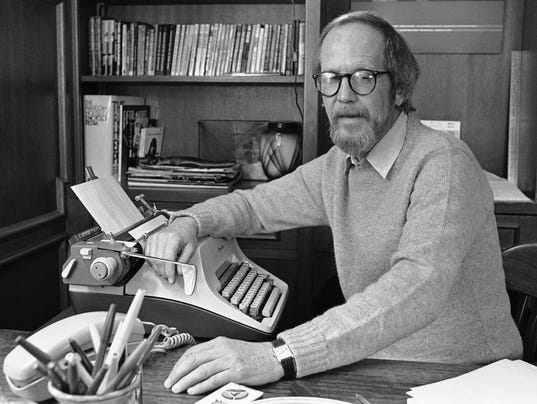 |
| He's watching you. |
In 2001 he outlined his ten rules of writing in The New York Times. They were about fiction, of course, but can we apply them to the more prosaic business of business writing? I think so.
For example, Leonard's second rule is: Avoid prologues. "They can be annoying, especially a prologue following an introduction that comes after a foreword. But these are ordinarily found in nonfiction. A prologue in a novel is backstory, and you can drop it in anywhere you want."
It has come up enough in my experience to be worth mentioning: often the beginning of a nonfiction book turns into a scrum among the first chapter, an introduction and a prologue. Too much stuff that feels introductory or necessary for everything that follows. I follow a simple rule based on absolutely no evidence whatsoever, and that is that I don't trust the reader to read anything before chapter one. So if it's important, put it in something labeled a chapter.
Leonard's fourth rule is to never use an adverb to modify the verb “said.” Well, we can adapt that to: never use an adverb. Make your nouns and verbs do the work. Adverbs are for sissies.
So can we all just jettison the hooptedoodle? You know it's there.
Let me rephrase that. If you've just written something, and you think you're ever so clever, and you're preparing your Nobel acceptance speech, delete it immediately before anyone sees it.
No comments:
Post a Comment